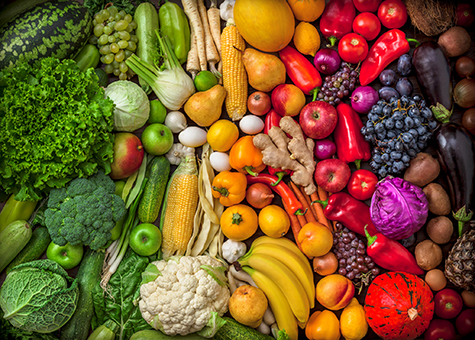Pro-Veggie Diets Prevent Heart Attacks

There’s an endless debate about eating meat, especially when it relates to the risk of heart disease.
Some people advocate a meat-based diet, while others avoid it at all costs. The truth may lie somewhere in the middle.
A pro-veggie diet, in which plants make up 70% or more of the meals, may be the answer. A recent study showed that it dramatically reduced the risk of heart attacks and strokes.
Pro-Veggie Diet Reduces Heart Attack and Stroke Risk by 20%
In the study, researchers from the American Heart Association analyzed the diet of 451,256 Europeans. They also collected information on height, weight, and physical activity. The participants were between the ages of 35 and 70 and were followed for an average period of 12 years.
A point system was devised to categorize the diet of individuals (pro-vegetarian versus animal-based). Anything plant-related which included cereals, vegetables, fruits, beans, nuts, and olive oil received points, while points were subtracted for animal products including fish, meat, chicken, eggs, and dairy. A score was devised to calculate the amount of plants making up the total diet.
 Compared to individuals who ate a mostly plant diet (70% or more of the diet was plant-based) those who ate fewer vegetables (less than 45%) were 20% less likely to die from heart attacks or strokes.
Compared to individuals who ate a mostly plant diet (70% or more of the diet was plant-based) those who ate fewer vegetables (less than 45%) were 20% less likely to die from heart attacks or strokes.
These results are not surprising, especially considering the outcomes of previous studies. Probably the most heart-friendly diet to date, the Mediterranean diet has been shown to reduce the risk of heart disease by nearly 50%.
A Mediterranean-style diet is mostly plant-based and is composed of whole grains, legumes, olive oil, nuts, seeds, fruits, and vegetables. The preferred sources of animal protein are chicken and fish. Red meat is eaten several times a month.
Working More Plants Into Your Diet is Easy
A practical way to eat a pro-veggie diet is to visually divide your plate into four sections (or buy a pre-divided plate).
About 3/4ths of it should be covered in plant foods. The remaining quarter should be reserved for animal protein.
Another option is to eat “vegetarian” on certain days of the month. The new trend called meatless Monday’s, for example, forces people to substitute a meat-based meal for something plant-based.
The Bottom Line
Increasing amounts of research emphasize the disease-preventing effects of plant-based foods. Are you getting enough in your diet?
